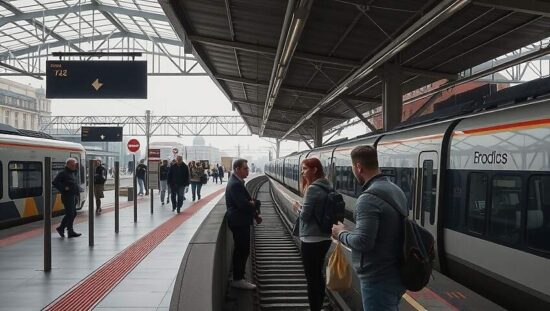The German Federal Ministry for Digital and Transport (BMDV) has signaled a significant shift in its approach to the nation’s railway network, expressing openness to increased competition in long-distance passenger services. A spokesperson for the ministry, responding to inquiries from the dts Nachrichtenagentur, stated that the government is actively working at the European level to dismantle remaining barriers to market access and promote greater competition within the European rail sector. The sentiment underscores a growing recognition that the current dominance of Deutsche Bahn (DB) may not be optimal for consumers.
While Flixbus’s subsidiary, Flixtrain, has previously challenged DB’s monopoly, the potential arrival of established international operators presents a considerably more substantial competitive pressure. Reports suggest that both Italy’s state-owned railway company, Ferrovie dello Stato (FS) and its rival, Italo, are actively exploring and advancing plans to introduce domestic routes within Germany.
This potential influx of foreign operators sparks a complex political landscape. DB, a historically vital national asset and significant employer, has long benefitted from a comparatively protected market position. The introduction of direct competition from FS and Italo could significantly impact DB’s revenue streams, potentially leading to restructuring and job losses – a politically sensitive issue for the German government.
Critics argue that DB’s lack of robust competition has contributed to issues of high ticket prices, inflexible schedules and a perceived deficiency in customer service. Increased competition, however, isn’t universally lauded. Concerns exist regarding the potential disruption to the existing network, the impact on regional rail services and the need for significant infrastructure upgrades to accommodate increased traffic.
The BMDV’s stated position is ostensibly consumer-focused, but the political maneuvering surrounding this potential market liberalization will undoubtedly be intricate. Whether the government can successfully navigate the competing interests of a national champion, regional authorities and consumer demands remains to be seen. The opening of the German rail market to foreign operators represents a pivotal moment, potentially reshaping the future of transportation within the country and across Europe.





